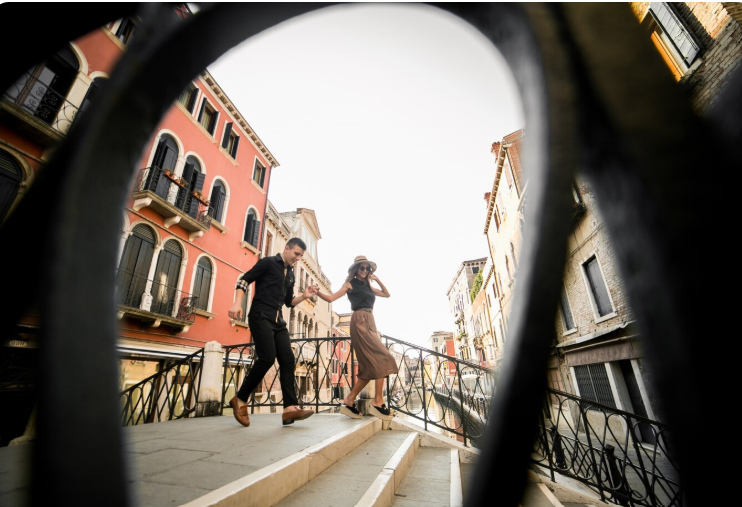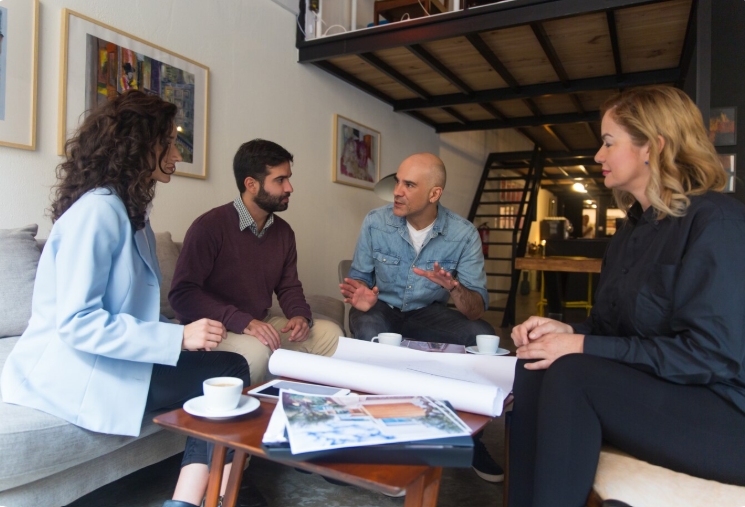
by Dulce Navarro | Jul 8, 2025 | Countries, Culture, Europe, Lifestyle, Travel
Navigating Business Etiquette in France: A Modern Guide
France is globally known for its cultural richness, refined style, and a deeply rooted sense of formality — characteristics that often shape the way business is conducted in the country. For international executives, entrepreneurs, or companies seeking to expand into the French market, understanding and adapting to local business etiquette can be the difference between closing a deal and missing an opportunity.
Whether you’re scheduling meetings in Paris or developing partnerships in Lyon, mastering the unspoken rules of French professional conduct will elevate your business presence and build long-term trust. This guide explores the key elements of doing business in France, including communication styles, meeting culture, dress code, and relationship-building strategies.
1. Formality and Hierarchy in the French Workplace
One of the first things foreign professionals notice is the formality embedded in French business culture. While French society has modernized in many ways, business communication and structure remain formal and hierarchical. Titles matter — especially when speaking with senior executives or government officials.
- Use proper titles such as “Monsieur” or “Madame” followed by the surname unless invited to use first names.
- Academic and professional credentials are often used in introductions, particularly in legal, academic, and technical fields.
- Decision-making tends to be top-down, and approvals may take longer than in more horizontal business cultures.
While younger professionals may be less rigid, it’s always wise to default to formality in initial encounters.
2. The Art of Professional Communication
French business communication tends to be intellectual, polished, and somewhat indirect. Eloquence and clarity are highly valued. In both written and spoken form, professionals often take a diplomatic approach, favoring well-structured arguments over casual dialogue.
Email correspondence and business proposals are expected to be grammatically correct and stylistically refined. Humor should be used cautiously and always in good taste. Avoid overly emotional language or aggressive sales tactics, as these may be seen as unprofessional or presumptuous.
It’s also important to note that the French are highly protective of their language. Making an effort to speak even a little French in meetings or written communication demonstrates respect and goes a long way in building rapport.
3. Scheduling and Conducting Meetings
Punctuality is respected in French business but not always practiced strictly. Arriving a few minutes early is considered professional, but be prepared for the meeting to start later than expected.
- Meetings are typically scheduled well in advance and often confirmed the day before.
- Agendas are appreciated, especially in corporate environments, although there may still be an element of flexibility during the discussion.
- Expect thorough analysis and debate before decisions are made — the French value critical thinking and may challenge ideas even if they agree with them overall.
Small talk, particularly around culture, history, or food, is welcomed at the start of meetings. However, personal topics should be avoided unless a strong relationship has already been established.
4. Business Attire and First Impressions
Appearance plays a significant role in France’s business culture. Dressing well signals respect, professionalism, and attention to detail. Conservative and elegant styles are favored over flashy or overly casual looks.
- Men: A tailored suit in neutral colors, polished shoes, and minimal accessories.
- Women: Business suits or sophisticated dresses with modest cuts and understated elegance.
- Grooming: Clean, polished appearances are essential. In creative industries, a slightly more relaxed style is accepted but still sharp.
First impressions are lasting in France, so a well-groomed, professional appearance is crucial from the outset.
5. Relationship Building and Trust
In French business culture, trust is built slowly through consistent professionalism and intellectual respect. Business is not rushed, and initial meetings may be more about assessing compatibility than closing a deal.
- Don’t push for rapid results. Focus on building credibility and demonstrating long-term commitment.
- Social engagements, such as business lunches or formal dinners, are common and should be treated seriously — being late or overly casual can damage a relationship.
- Business and personal life are often kept separate. Avoid asking too many personal questions unless the relationship becomes more established.
Once a relationship is built, French partners tend to be loyal, honest, and dedicated to mutual success.
6. Negotiations and Contracts
French professionals are skilled negotiators who appreciate logical reasoning and a well-prepared argument. Contracts tend to be detailed and are often reviewed multiple times before signing.
Expect negotiation to take time and be open to revisions. Unlike in some cultures, a handshake does not usually finalize a deal — everything must be in writing and thoroughly reviewed. French law favors written documentation, so keep meticulous records of all agreements.
Learning New Languages as an Expat: Strategies for Quick Success
If you’re planning to live or work in France long-term, learning the language will enhance every aspect of your experience — professionally and personally. Even a basic level of French can make a positive impression and deepen relationships.
Here are a few strategies for quick language success:
- Start before you arrive: Use language apps or online courses like Babbel, Rosetta Stone, or Duolingo.
- Take formal classes: Enroll in Alliance Française or local language institutes offering structured programs.
- Immerse yourself: Read French newspapers, listen to French radio, and watch local TV with subtitles.
- Speak daily: Practice in everyday situations — ordering coffee, navigating transportation, or making small talk with locals.
- Language exchange: Partner with a local for weekly language swaps — one speaks English, the other French.
Learning a new language is a commitment, but the rewards — increased integration, confidence, and new opportunities — are more than worth the effort.
Stay Connected for More Travel and Lifestyle Inspiration.
For more insights into travel, culture, and lifestyle tips, follow me on Instagram @salvadorordorica. If you’re seeking professional translation and localization services to enhance your global ventures, visit The Spanish Group — your trusted partner in bridging cultures worldwide.

by Dulce Navarro | Jul 8, 2025 | Culture, Europe, Residency, Travel, Work
Digital Nomad Visas in France: What You Need to Know
With its world-class cuisine, iconic culture, high-speed rail network, and an ever-expanding digital economy, France has become an increasingly popular destination for remote professionals and entrepreneurs. Whether you’re seeking the romantic charm of Paris, the coastal serenity of Nice, or the peaceful countryside in Provence, France offers an enriching lifestyle for digital nomads.
However, one question continues to surface for remote workers dreaming of croissants and cobblestones: Does France offer a digital nomad visa? And what are your legal options if you’re a freelancer or remote employee wishing to stay in France longer than a tourist visa allows?
Is There a Digital Nomad Visa in France?
Technically, France does not currently offer a visa specifically labeled as a “digital nomad visa.” However, there are alternative residency permits and long-stay visa options that can accommodate remote workers, freelancers, and business owners — depending on your income, professional status, and long-term plans.
Here are the most relevant visa options for digital nomads interested in living and working remotely from France:
1. Long-Stay Visa (Visa de Long Séjour – VLS-TS)
This visa allows non-EU nationals to live in France for more than 90 days, and up to a year. There are several categories under the VLS-TS, but digital nomads often apply under the “visitor” or “self-employed” status.
- Visitor Visa: Best suited for remote workers employed by a foreign company or who run their own business abroad. This visa allows you to reside in France without seeking employment within the French market. Proof of sufficient financial means and private health insurance is required.
- Profession Libérale Visa: Ideal for freelancers and self-employed individuals who plan to offer services while residing in France. Applicants must register with the URSSAF and provide a detailed business plan, proof of income, and professional background.
2. Talent Passport – Entrepreneur or Innovative Project
This multi-year residence permit is designed for entrepreneurs planning to launch a business or innovative project in France. To qualify, you must invest a minimum amount of capital (usually €30,000 or more), demonstrate a viable business plan, and show relevant experience or qualifications.
Though it’s more demanding in terms of documentation and investment, this visa provides a pathway to longer stays and potential residency for those who wish to grow their operations in France.
3. EU Nationals and Schengen Residents
If you’re an EU or EEA national, you do not need a visa to live or work in France. You can simply move and begin working as long as you register properly and comply with tax and health insurance regulations.
How to Apply for a Long-Stay Visa in France
The process typically begins at your local French consulate or embassy. While specific requirements vary by visa type, most applications require the following:
- A valid passport
- Completed visa application form
- Passport-size photos
- Proof of income or financial support
- Proof of accommodation in France
- Private health insurance coverage
- Cover letter explaining your reasons for living in France
Expect the process to take anywhere from 1 to 3 months, so plan ahead. Once approved, you can convert your visa into a residence permit at your local prefecture once you arrive in France.
Living Legally and Working Remotely in France
As a digital nomad in France, it’s important to remain compliant with local regulations. Here are a few key things to keep in mind:
- Taxes: If you stay in France for more than 183 days per year, you may be considered a tax resident and need to declare your global income.
- Health Insurance: French law requires you to have valid health coverage. Private insurance is required for visa applications, but once you’re settled, you may be eligible for the French public healthcare system.
- Business Registration: If you plan to offer services while in France (under the Profession Libérale visa), you’ll need to register your business and may be required to pay into the French social security system.
Keeping documentation updated and organized will ensure a smooth transition to remote living in France.
Where Are the Best Places in France for Digital Nomads?
France offers a diverse range of settings depending on your preferences:
- Paris: Ideal for business networking, cultural immersion, and international connectivity.
- Lyon: A foodie paradise with lower costs of living and a thriving tech scene.
- Nice: Mediterranean beauty, excellent weather, and proximity to Italy and Monaco.
- Bordeaux: Known for its wine, laid-back vibe, and growing digital infrastructure.
- Toulouse: A center for aerospace and tech, with a student-friendly population and moderate living expenses.
Co-working spaces, startup hubs, and networking events are increasingly common across these cities, making it easier than ever to stay productive while enjoying la vie française.
Learning New Languages as an Expat: Strategies for Quick Success
One of the most rewarding — and at times challenging — parts of living abroad is adapting to the local language. While many in France speak some English, integrating into society and enjoying your daily life becomes much easier when you speak French.
Here are a few proven strategies for learning French faster:
- Language apps: Use tools like Duolingo, Babbel, or LingQ daily.
- Local immersion: Speak with neighbors, shopkeepers, and locals as often as possible, even if you make mistakes.
- Take structured classes: Look for language schools or online French programs with native instructors.
- Watch French media: Stream French shows and movies with subtitles to build listening comprehension.
- Practice with a partner: Find a language exchange buddy or tutor for regular conversation practice.
With consistency and curiosity, you’ll find yourself navigating French culture with confidence and ease.
Stay Connected for More Travel and Lifestyle Inspiration.
For more insights into travel, culture, and lifestyle tips, follow me on Instagram @salvadorordorica. If you’re seeking professional translation and localization services to enhance your global ventures, visit The Spanish Group — your trusted partner in bridging cultures worldwide.

by Dulce Navarro | Jul 7, 2025 | Countries, Culture, Europe, Lifestyle, Travel
Hidden Gems in Italy: Local Secrets Beyond the Tourist Trail
Italy is famous for its world-renowned cities—Rome, Venice, Florence, and Milan—each teeming with art, architecture, and timeless charm. Yet, beyond the iconic destinations lies another Italy, one filled with lesser-known towns, secluded landscapes, and cultural treasures untouched by mass tourism. For the discerning traveler seeking authenticity, tranquility, and local flavor, exploring Italy’s hidden gems offers an unforgettable journey into the soul of the country.
Why Go Off the Beaten Path?
Traveling beyond Italy’s tourist trail isn’t just about avoiding crowds—it’s about discovering real life as it’s lived by locals. Smaller towns and remote regions allow for deeper cultural immersion, intimate culinary experiences, and genuine hospitality. These destinations offer more space to explore at your own pace, with lower costs and a slower rhythm that invites you to linger.
1. Civita di Bagnoregio – The Dying City
Located in the Lazio region, Civita di Bagnoregio is often called “the dying city” due to its crumbling volcanic foundation and near-abandonment. Accessible only by footbridge, this dramatic hilltop village is straight out of a fairytale. Its ancient cobblestone streets, flower-adorned balconies, and panoramic views make it one of Italy’s most photogenic secrets. Though small, its charm is immense, and visiting helps support the preservation of this endangered town.
2. Procida – Italy’s Colorful Island Escape
While Capri and Ischia often draw the spotlight in the Bay of Naples, Procida remains a hidden gem. This tiny island, with its pastel-colored buildings and narrow lanes, feels frozen in time. It was named Italy’s Capital of Culture in 2022 and remains blissfully quiet even in peak season. Seafood lovers will adore the waterfront trattorias, and the slow pace is perfect for unwinding. Ferries from Naples make it easily accessible for a peaceful day trip.
3. Castelmezzano – A Village in the Clouds
Nestled in the Dolomiti Lucane mountains of Basilicata, Castelmezzano is one of Italy’s most breathtaking hill towns. Surrounded by dramatic peaks, the village offers adventurous travelers hiking trails, zip-lining between mountaintops, and epic views. Beyond the thrill, Castelmezzano is rich in folklore, and its unspoiled charm makes it a must for those craving natural beauty and solitude.
4. Trento – Alpine Sophistication Without the Crowds
Often overlooked in favor of nearby Bolzano or the Dolomites, Trento offers a blend of Austrian and Italian heritage. With its Renaissance palazzi, frescoed facades, and mountainous backdrop, Trento combines culture and nature seamlessly. The city is also a hub for innovation and quality of life, ideal for travelers looking for both refinement and outdoor access.
5. Noto – Sicily’s Baroque Jewel
While much of Sicily attracts tourism, the southeastern town of Noto remains relatively under the radar. Known for its stunning baroque architecture, Noto is a UNESCO World Heritage site where golden-hued buildings glow in the Sicilian sun. Visit in spring for the Infiorata di Noto, when the streets are transformed into vibrant carpets of flower art. The nearby beaches and food scene also make Noto a perfect alternative to busier Sicilian cities.
6. Ascoli Piceno – A Culinary and Architectural Delight
Located in Le Marche, Ascoli Piceno is a gem that combines stunning piazzas with exceptional cuisine. The town’s main square, Piazza del Popolo, is often described as one of Italy’s most beautiful. With Roman bridges, medieval towers, and Renaissance buildings, Ascoli is a history lover’s dream. Be sure to try the local specialty, *olive all’ascolana*—deep-fried stuffed olives—paired with regional wines.
7. Piedmont’s Wine Villages – Beyond Barolo
Piedmont is famed for its wine, especially Barolo, but beyond the well-known labels lie charming villages like Neive, La Morra, and Monforte d’Alba. These hilltop towns offer idyllic landscapes, cozy wine cellars, and world-class cuisine without the tourist density of Tuscany. Autumn is particularly magical during the truffle season and grape harvest.
Traveling Mindfully: Supporting Local Economies
Exploring hidden gems also has a positive impact on Italy’s smaller communities. Your visit helps sustain local businesses, artisans, and traditions. Choose family-run accommodations, dine at locally owned restaurants, and consider taking part in local workshops or festivals. Traveling this way not only enriches your experience—it empowers communities to preserve their heritage.
Practical Tips for Discovering Italy’s Hidden Gems
- Rent a car: Many of these destinations are best reached by car, offering flexibility and scenic drives.
- Learn a few Italian phrases: English may not be widely spoken in smaller towns. Even basic Italian is appreciated and helpful.
- Visit during the shoulder season: Spring and fall offer ideal weather and fewer crowds.
- Ask locals: Often, the best spots aren’t listed online. Locals love sharing tips if you’re open and respectful.
Learning New Languages as an Expat: Strategies for Quick Success
Whether you’re traveling long-term or planning to relocate to Italy, learning the local language can transform your experience. It opens doors to deeper cultural connection, smoother daily interactions, and lasting relationships.
Here are some quick strategies to get started:
- Daily practice: Set aside 15–30 minutes each day for listening, reading, or speaking Italian.
- Language exchange: Partner with a local who wants to learn your language in exchange for teaching you Italian.
- Apps and audio: Use tools like Duolingo, Pimsleur, or Babbel during your commute or walk.
- Enroll in a local class: Immersion courses in Italy are not only effective but also a great way to meet people.
- Be patient: Progress takes time. Celebrate small victories like ordering a coffee in Italian or asking for directions.
Language isn’t just a skill—it’s a bridge. It fosters empathy, respect, and understanding, which are essential whether you’re an expat, a traveler, or a global professional.
Stay Connected for More Travel and Lifestyle Inspiration
For more insights into travel, culture, and lifestyle tips, follow me on @salvadorordorica. If you’re seeking professional translation and localization services to enhance your global ventures, visit The Spanish Group — your trusted partner in bridging cultures worldwide.

by Dulce Navarro | Jul 7, 2025 | Countries, Europe, Lifestyle, Travel
Experiencing Italy on a Budget: A Local’s Perspective
Italy is a dream destination for many — a land of timeless art, stunning architecture, passionate people, and of course, unforgettable food. While the allure of luxury villas in Tuscany or five-star hotels on the Amalfi Coast may dominate social media feeds, Italy also offers a rich cultural experience for the budget-conscious traveler. From local secrets to practical strategies, this article shares a local’s perspective on how to experience Italy authentically and affordably.
Travel Off-Peak and Off-Path
One of the best ways to stretch your euros in Italy is by traveling during the shoulder or off-season. Avoiding the summer months of July and August not only helps you escape the crowds but also leads to better deals on accommodation and flights. Consider visiting in late spring (April–June) or early fall (September–October), when the weather is still pleasant and festivals are in full swing.
Additionally, venture beyond the usual tourist cities like Rome, Florence, and Venice. Smaller towns such as Lecce, Lucca, and Orvieto offer equally captivating charm with significantly lower costs. You’ll discover a more intimate side of Italy—one that is welcoming, slower-paced, and deeply rooted in tradition.
Getting Around: Local Transport and Regional Trains
Italy’s extensive train system makes it easy to travel between cities and regions. Opt for regional trains (Treni Regionali) instead of high-speed options like Frecciarossa or Italo. While slower, regional trains are significantly cheaper and perfect for short-to-medium distance travel.
Within cities, public transport is both affordable and efficient. Metro systems in Milan, Rome, and Naples are straightforward, and smaller cities offer reliable buses and trams. Many towns are also very walkable, so lace up your shoes and take advantage of Italy’s scenic streets and piazzas.
Eat Like a Local
Italian cuisine is among the world’s most beloved—and it doesn’t have to break the bank. Avoid tourist-trap restaurants near major landmarks. Instead, look for trattorias and osterias where locals dine. These smaller, family-run establishments offer authentic dishes at a fraction of the price of more touristy venues.
Another local secret: many bars offer an “aperitivo” in the early evening, typically between 6–8 PM. With the purchase of a drink, you gain access to a buffet of appetizers. It’s a budget-friendly way to enjoy light dinner while soaking in the social vibe of the neighborhood.
Also, don’t underestimate the value of local markets. Cities like Palermo, Bologna, and Turin have sprawling food markets where you can find fresh produce, cheeses, bread, and regional specialties. Pack a picnic and dine with a view—whether in a park or by a scenic overlook.
Affordable Accommodations with Character
Forget overpriced hotels—Italy has a variety of charming and affordable lodging options. Agriturismos, or farm stays, are popular in rural areas and provide a unique blend of hospitality, nature, and local cuisine, often at very reasonable rates.
In cities, consider guesthouses (affittacamere), hostels, or Airbnb rentals. Many family-run B&Bs offer breakfast included and provide personal insights about the best local spots. Booking in advance and being flexible with your dates can lead to substantial savings.
Free (or Almost Free) Attractions
Italy’s cultural wealth is unparalleled, and you don’t always have to pay to experience it. Many churches, including some of the most architecturally significant in the world, are free to enter. Walking tours, while often guided for a fee, can be self-led with free apps or guidebooks.
Rome offers free entry to the Vatican Museums (including the Sistine Chapel) on the last Sunday of every month. Museums in Florence and Venice also have monthly or weekly free days. For art lovers, simply wandering the streets often feels like being inside an open-air museum. From Baroque fountains to Renaissance statues, beauty is everywhere—and often free.
Language and Connection
Making an effort to speak a few words of Italian can go a long way—not just in building rapport but also in unlocking local tips and experiences. Locals are often more inclined to share their favorite spots when they see you’re genuinely interested in their culture. Apps like Google Translate can help bridge any gaps, and many young Italians speak at least some English.
Remember, the goal is not just to see Italy, but to experience it. Engage with locals at cafés, join a cooking class, or simply spend time people-watching in a piazza. These are the moments that make travel memorable, and they rarely cost much.
Learning New Languages as an Expat: Strategies for Quick Success
If you’re planning to stay longer or return frequently to Italy, learning the language will enhance every aspect of your experience. Here are a few strategies for rapid progress:
- Immerse Yourself: Switch your phone to Italian, listen to Italian radio, and watch local shows with subtitles.
- Use Language Apps: Duolingo, Babbel, and Mondly can help you build essential vocabulary and phrases.
- Take Local Lessons: Many towns have language centers that offer affordable group classes.
- Practice Daily: Whether it’s ordering coffee or chatting with neighbors, speaking daily helps build confidence.
- Make Mistakes: Don’t worry about being perfect. Italians will appreciate your effort and help you improve.
Language is not just a tool—it’s a passport to deeper understanding, authentic connection, and cultural appreciation. Whether you’re in Italy for a week or a year, speaking the language enriches every moment.
Stay Connected for More Travel and Lifestyle Inspiration
For more insights into travel, culture, and lifestyle tips, follow me on @salvadorordorica. If you’re seeking professional translation and localization services to enhance your global ventures, visit The Spanish Group — your trusted partner in bridging cultures worldwide.

by Dulce Navarro | Jul 7, 2025 | Business, Countries, Culture, Europe, Traditions, Travel, Work
Cultural Nuances in Spanish Business Settings
Spain, with its rich heritage, vibrant culture, and global economic ties, presents both opportunities and challenges for professionals navigating its business environment. Whether you’re launching a startup in Madrid, negotiating contracts in Barcelona, or building a multinational presence from Valencia, understanding the cultural nuances of Spanish business etiquette is vital for sustainable success. This article explores the intricacies of Spanish business culture and provides practical tips for thriving in this dynamic environment.
Understanding the Foundations of Spanish Business Culture
Spanish business culture is deeply rooted in respect, personal relationships, and trust. Unlike more transactional cultures, Spain emphasizes human connections and values the time it takes to build genuine rapport. Business interactions often begin with informal discussions, and it’s common for meetings to start later than scheduled, reflecting a more flexible sense of time.
Hierarchy is also important in Spanish companies, though not as rigid as in some other cultures. Titles and ranks matter, and decisions are often made at the top. This makes it important to identify and engage with key decision-makers early in any negotiation or partnership.
Communication Style: Expressive and Indirect
Spaniards are generally expressive communicators. Gestures, facial expressions, and tone of voice all play a significant role in conveying messages. While honesty is appreciated, direct confrontation is often avoided. Instead, communication tends to be more nuanced and diplomatic. Reading between the lines and understanding non-verbal cues is a critical skill for foreigners doing business in Spain.
Meetings often involve lively discussion and overlapping speech, which should not be mistaken for rudeness. Rather, it is a cultural norm that reflects enthusiasm and engagement.
Building Trust Through Personal Relationships
Trust is the cornerstone of Spanish business relationships. While credentials and expertise matter, establishing a personal connection is often the key to unlocking long-term collaborations. Spaniards prefer doing business with individuals they know and trust. Business lunches, coffee breaks, and dinners are common and should not be rushed—they are opportunities to build rapport and discuss matters beyond work.
Networking is essential. Personal referrals and introductions carry significant weight, and many business deals begin with a strong personal recommendation. As such, investing in relationship-building activities is more than just good etiquette—it’s a strategic necessity.
Work-Life Balance and Business Hours
Spain is known for valuing work-life balance. Although this is evolving with global business demands, many professionals still adhere to traditional business hours, with a mid-day break (or “siesta”) still observed in some regions. The standard workday might begin around 9:00 AM, with a long lunch break around 2:00 PM, and then continue into the early evening.
Understanding and respecting these rhythms is crucial, especially when scheduling meetings or expecting swift replies. Pushing for urgency in a culture that prioritizes balance may backfire and damage the relationship.
The Role of Formality and Appearance
While Spaniards are warm and personable, professionalism and presentation still matter. In business settings, people dress conservatively and elegantly. First impressions are important, and your appearance should communicate competence and respect for the occasion.
Titles such as “Señor” or “Señora” followed by a surname are commonly used, especially in initial meetings. It’s best to wait until invited to switch to a first-name basis.
Negotiations and Decision-Making
Spanish negotiations may seem slower compared to other business environments. Patience is essential. Decisions often involve multiple layers of approval, and rushing the process can be seen as disrespectful. It’s common for discussions to revisit the same points multiple times to build consensus and comfort with the final decision.
Be prepared to engage in lengthy, relationship-driven negotiations that may include social meetings outside the office. Demonstrating long-term commitment is more valued than aggressive negotiation tactics focused solely on short-term gains.
Regional Differences Within Spain
It’s important to note that Spain is not culturally homogeneous. Significant differences exist between regions such as Catalonia, the Basque Country, and Andalusia. Language preferences, business etiquette, and communication styles may vary accordingly. For example, in Catalonia, business may be conducted in Catalan as well as Spanish, and locals may place strong emphasis on regional identity.
Being sensitive to these distinctions can enhance your credibility and show respect for local culture. A one-size-fits-all approach rarely works in Spain, so do your homework and adapt accordingly.
Learning New Languages as an Expat: Strategies for Quick Success
One of the most powerful ways to succeed in Spanish business settings—and expat life more broadly—is to learn the local language. Even a basic understanding of Spanish can significantly improve relationship-building, communication, and everyday integration.
Here are a few quick strategies for language success:
- Immerse Yourself: Spend time listening to Spanish radio, watching Spanish TV shows, and reading local news.
- Use Language Apps: Tools like Duolingo, Babbel, or Rosetta Stone can help you build vocabulary and confidence.
- Hire a Tutor: Personalized guidance accelerates learning and allows you to ask business-specific questions.
- Practice Daily: Speak with locals, even if you make mistakes. Most people appreciate the effort.
- Join Language Meetups: Attending social gatherings where people practice Spanish can offer both language and networking benefits.
Language fluency not only builds stronger business relationships but also demonstrates cultural respect—an invaluable trait in Spain’s professional world.
Stay Connected for More Travel and Lifestyle Inspiration
For more insights into travel, culture, and lifestyle tips, follow me on @salvadorordorica. If you’re seeking professional translation and localization services to enhance your global ventures, visit The Spanish Group — your trusted partner in bridging cultures worldwide.

by Dulce Navarro | Jul 3, 2025 | Countries, Culture, Europe, Lifestyle, Travel
Day Trips from Paris for Wine Lovers
France is globally celebrated for its wine, and Paris, its elegant capital, serves as the perfect launch point for unforgettable day trips into the heart of wine country. Whether you’re a seasoned connoisseur or a curious beginner, the regions surrounding Paris offer an extraordinary variety of vineyards, historical cellars, and wine-tasting experiences. For company directors and business professionals looking to blend leisure with cultural enrichment, these day trips promise refined indulgence just a short train ride or drive away.
1. Champagne: The Bubbly Capital of the World
Only 90 minutes from Paris by train, the Champagne region is an essential destination for sparkling wine lovers. Towns like Reims and Épernay are home to legendary houses such as Moët & Chandon, Veuve Clicquot, and Taittinger. Visitors can tour chalk cellars that date back to Roman times, learn about the méthode champenoise, and enjoy expertly guided tastings.
Épernay’s Avenue de Champagne is often called the “most expensive avenue in the world,” thanks to the millions of bottles aging beneath its surface. For a more intimate experience, family-owned estates in the surrounding hills offer warm hospitality and boutique cuvées.
2. Loire Valley: A Royal Landscape of Wine and Châteaux
Roughly two hours from Paris, the Loire Valley is both a UNESCO World Heritage Site and a viticultural paradise. The region stretches along the Loire River and is famous for its scenic beauty, Renaissance châteaux, and diverse wine styles — from crisp Sauvignon Blanc in Sancerre to lush Chenin Blanc in Vouvray and elegant reds from Chinon.
Private wine tours and tastings are available at numerous estates, and many offer English-speaking guides. This region perfectly combines wine education with architectural wonder, making it a rich and balanced day trip for culture-seekers and wine aficionados alike.
3. Burgundy: Home of Pinot Noir and Chardonnay
Although slightly farther (approximately 2 hours by train to Dijon or Beaune), Burgundy rewards travelers with an unrivaled wine heritage. This is the birthplace of some of the world’s most prestigious Pinot Noir and Chardonnay wines, often cultivated on small parcels of land passed down through generations.
Beaune, the wine capital of Burgundy, offers a charming medieval atmosphere and access to renowned domaines such as Domaine de la Romanée-Conti. Guided vineyard walks, cellar visits, and tastings are widely available, offering insight into terroir-driven wine production.
4. Île-de-France Vineyards: Hidden Gems Near the Capital
Few realize that even within the Île-de-France region itself — the area surrounding Paris — there are small-scale vineyards producing quality wines. Vineyards in Suresnes, Montmartre, and even Versailles maintain centuries-old traditions in viticulture.
While these wines are not widely distributed, they offer an intriguing glimpse into Paris’s agricultural past. A visit to the Clos Montmartre during its annual harvest festival in October is both festive and historically meaningful, complete with parades, tastings, and music.
5. Chablis: Crisp, Mineral-Driven White Wines
Located just over two hours from Paris, Chablis is part of the northern Burgundy region and is known exclusively for its Chardonnay. The wines are renowned for their minerality, crispness, and aging potential — a must-visit for white wine lovers.
The village itself is peaceful and picturesque, offering cellar visits, tasting rooms, and educational tours that delve into the region’s unique Kimmeridgian soil, which plays a critical role in the flavor profile of Chablis wines.
Tips for Planning a Wine Day Trip from Paris
- Use the TGV or regional trains: High-speed rail from Paris makes many of these destinations accessible in under two hours.
- Book tastings in advance: Especially at prestigious houses, reservations are essential.
- Hire a driver or join a guided tour: To fully enjoy tastings without worrying about transport.
- Combine wine with local cuisine: Many estates offer food pairings or can recommend nearby restaurants.
Each of these regions offers its own unique appeal and provides insight into French heritage through the lens of viticulture. Exploring them not only enhances your understanding of wine but also connects you to local history, agriculture, and craftsmanship — all within a short distance of Paris.
Learning New Languages as an Expat: Strategies for Quick Success
As a wine-loving expat immersing yourself in French culture, learning the language can dramatically enhance your experience. Whether you’re attending tastings, networking, or exploring new regions, speaking the language opens doors. Here are a few strategies to accelerate your progress:
- Immerse Yourself: Listen to French podcasts, watch local shows, and try to use the language daily, even in small interactions.
- Take Structured Lessons: Enroll in a language school or use a platform like iTalki for one-on-one tutoring tailored to your level.
- Practice Socially: Join expat and local meetups to practice conversational French in real-world settings.
- Be Patient and Persistent: Fluency takes time. Celebrate small wins and keep practicing, even if you make mistakes.
Learning the local language not only helps in navigating daily life but also deepens your appreciation of regional traditions — especially in culturally rich areas like French wine country.
Stay Connected for More Travel and Lifestyle Inspiration. For more insights into travel, culture, and lifestyle tips, follow me on
@salvadorordorica. If you’re seeking professional translation and localization services to enhance your global ventures, visit
The Spanish Group — your trusted partner in bridging cultures worldwide.






